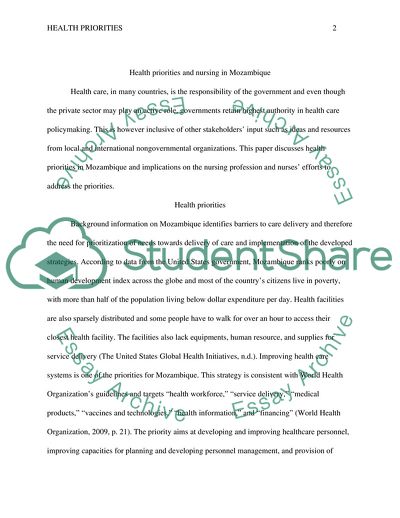Not Found (#404) - StudentShare. https://studentshare.org/medical-science/1851043-health-priorities-and-nursing-in-mozambique
Not Found (#404) - StudentShare. https://studentshare.org/medical-science/1851043-health-priorities-and-nursing-in-mozambique.


